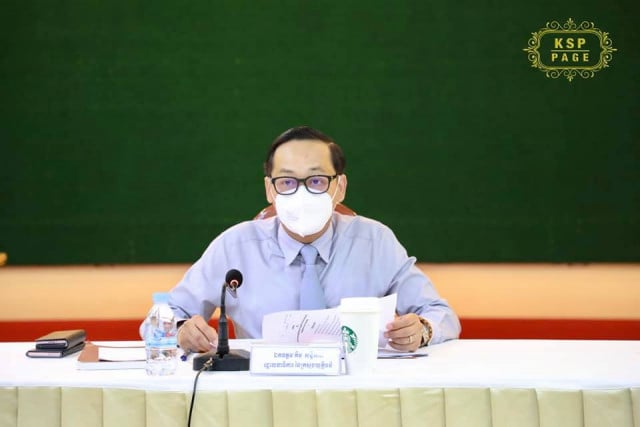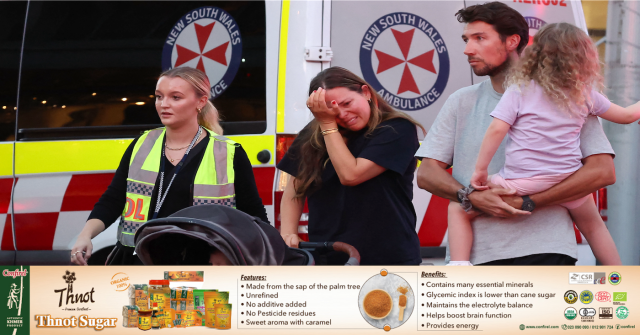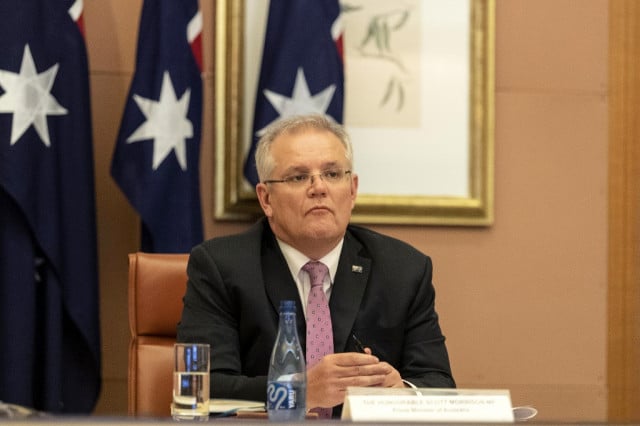Covid Infections Prompt Jail Release Rethink

- By Teng Yalirozy
- June 17, 2021 5:39 PM
Draft order sets out new conditions
PHNOM PENH--New rules and mechanisms have been drawn up to integrate prisoners back into society and monitor them under conditional release as Covid-19 spreads in overcrowded jails.
A draft order also spells out the jurisdiction of authorities to monitor inmates returning to society after release on parole. Justice Ministry Secretary of State Kim Santepheap chaired a discussion on the draft on June 16.
Cambodia’s prisons have 39,000 inmates in facilities designed for fewer than 27,000. Covid infections have affected jails across the country.
Santepheap was not able to confirm the date for the implementation of the draft. He said it had to be reviewed by his and other ministries before being implemented.
“To ensure the implementation of the conditions decided by the judge and the actual transformation of the inmates when returning to society, this draft announcement must go through careful consideration of legal procedures, Santepheap said.
“Particularly, the authorities’ ability to monitor released inmates on parole must be taken into account.”
Conditional release of prisoners is enshrined in the Criminal Code, which refers to the conditions under which freedom is given. Inmates re-entering society on parole must comply with the conditions imposed by the court. If not, they will be detained again. Released prisoners on bail are still called inmates.
Conditional release is based the period of the sentence and the transformation of the prisoner and is at the discretion of the court.
Kim Santepheap said conditional release is to give prisoners a chance to reform themselves when returning to society.
However, the numbers of the prisoners who will be released on parole and where they will be staying are unknown.
Conditional release is in addition to pardons and sentence reductions. Cambodia has always granted these clemencies five times a year on national holidays, the Khmer New Year, the Visak Bochea Festival, National Independence Day, the Water Festival and Victory Day over the genocide regime.
These clemencies are the King’s decision at the request of the Prime Minister who also receives the request from the National Commission for the Review of Pardons and Amnesty.
Prisoners who receive a pardon remain in prisons, but their sentences are reduced. Prisoners who receive an amnesty are released and are no longer called prisoners. Prisoners who are released on parole are still called prisoners and are still monitored by the authorities.
Am Sam Ath, deputy director for rights group Licadho, said civil society organizations have concerns about overcrowding and Covid-19 infections in prisons.
Civil society groups always call for the temporary release of the pre-trial detainees, prisoners nearing the end of their sentences, pregnant detainees or females with small children, detainees with health issues, elderly detainees and juvenile detainees.
Sam Ath said, “The release on parole or on any other means must be transparent and fair without discrimination.”
General Department of Prisons spokesman Nuth Savna was not able to confirm exact numbers but said Covid-19 outbreaks had occurred in Phnom Penh Jail, Correctional Centers 1 and 2 in Phnom Penh and prisons in Preah Sihanouk, Kandal, Kampong Speu, Banteay Meanchey, Pailin and Svay Rieng provinces, affecting 10 to 20 percent of inmates in each place.
Amnesty International, in May 2020, reported that at least 55,770 people were arrested in Cambodia on drugs charges between January 2017 and March 2020 as part of an anti-drugs campaign that criminalized substance abuse rather than seeking to treat it as a societal problem.
Throughout the pandemic rights groups such as Amnesty International and Human Rights Watch have urged the government to address what they called a ticking time bomb by releasing non-violent prisoners to reduce the risk of the virus spreading unchecked.
Additional reporting by Mao Sopha















